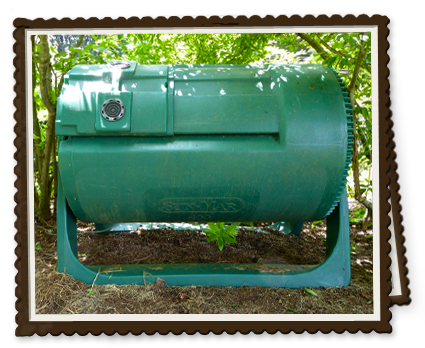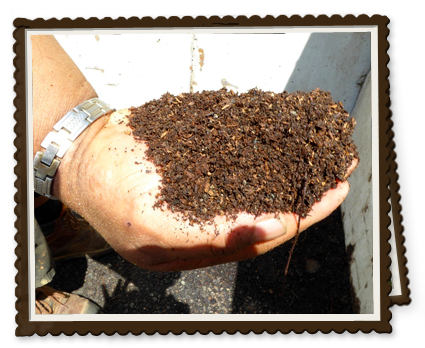
Seeds of Change
Compost
Composting
Ah, composting! You can compost practically anything organic. However, for garden purposes we usually compost kitchen waste (but not meat), leaves, grass clippings, and most commonly horse, cow and chicken manure. (I’m sure llama and alpaca manure would be just fine also.)
My mother used to put the kitchen clippings and peelings, melon rinds, spent squash, now green potatoes and the like in an unobtrusive pile outside. In the summer it would usually sprout a variety of mystery plants that sometimes turned out to be magnificent specimens of an edible variety. It was always full of fat earth worms, ripe for the gathering if one wanted to go fishing. Its real purpose, however, was to provide a nutritious supplement for the vegetables-to-be that we were planting in the garden.
Of course, one can also purchase a variety of containers for this purpose. Browse Gardeners Supply or Google “Composters”. The microbes that do all the work breaking down this material like moisture and air to do their thing. You can purchase a rotating composter to contain, mix and fluff the stuff, use a special compost bin, or turn your pile with a fork. But for those with more patience, like my mother, you can just let it sit in a pile and Mother Nature will eventually prevail.

As a horse farm, we produce compost in industrial quantities. We compost our horse manure/bedding combo in specially designed bins. Those hard working microbes heat it to almost 180 degrees, hot enough to kill weed seeds from any hay, and also hot enough to spontaneously combust if we covered it. It takes about three months to fill the first bin, and then we move it to another bin, using a tractor loader. This also aerates the stuff. Subsequent bins we cover with special compost fleece which allows air to move in and out, but sheds most of the rain, so the compost does not lose its nutrients. Each bin gets successively cooler as the material breaks down. By the time the compost reaches the third bin it is six months old, feels and smells like dirt, and we start selling it to be used in your gardens. (If you come by with a garbage can we will give it to you free.) We also have “aged reserve Wormpost” in a fourth bin, and by this time full of earthworms!
